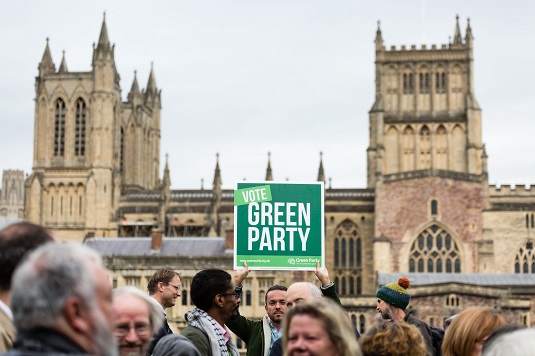This month saw 26,595 votes cast in 11 local authority contests. All percentages are rounded to the nearest single decimal place. Only three council seats changed hands. For comparison with December's results, see here.
Party
|
Number of Candidates
|
Total Vote
|
%
|
+/- Dec
|
+/- Jan 23
|
Avge/
Contest
|
+/-
Seats
|
Conservative
|
10
| 7,774
|
29.2%
| -5.2
|
+4.1
|
777
|
0
|
Labour
|
11
| 7,697
|
28.9%
| +13.2
|
-14.4
| 700
|
-2
|
Lib Dem
|
11
| 7,393
|
27.8%
| -13.1
|
+21.5
|
672
|
+1
|
Green
|
8
| 1,972
|
7.4%
| +0.9
|
+0.4
|
247
|
0
|
SNP*
|
1
| 1,000
|
3.8%
| +3.8 |
+3.8
| 1,000
|
0
|
PC**
|
0
|
|
|
|
|
|
0
|
Ind***
|
7
| 397
|
1.5%
|
-0.8
|
-11.7
|
57
|
+1
|
Other****
|
6
|
362
|
1.4%
| +1.2
|
-3.3
|
60
|
0
|
* There was one by-election in Scotland
** There was one by-election in Wales
*** There was one Independent clash
**** Others this month consisted of Democratic Liberation (49), Liberal (118), Reform (54), Scottish Family Party (50), TUSC (53), UKIP (38)
January is always a funny month in council by-election land, and the opener for 2024 is no exception. The Tories dropped one to the Lib Dems but gained one in Hackney from Labour. Yes, there were "special circumstances" but that the Tories, as they approach Liz Truss polling levels, can pluck a seat from Labour in a ward they should have walked is demonstrative of the lack of enthusiasm for Keir Starmer's offerings.
And this is backed up by the Liberal Democrats' figures. Going back to when an election was last expected in a year - January 2015 - the Lib Dems, UKIP, and the SNP were all doing well. One might say, given what happened, that this suggested a lack of momentum behind Labour. Of course, that does not directly map on. Labour was not 14 to 27 points ahead in the polls the, but it underlines what I've been arguing for years: that their is no solid base of support for Keir Starmer, and that will cost him in the long run.
11th January
Brighton & Hove, South Portslade, Lab hold
Dorset, Littlemoor & Preston, Con hold
Salford, Quays, LDem hold
Tendring, Bluehouse, Ind gain from Lab
18th January
Hackney, Cazenove, Con gain from Lab
Richmond upon Thames, Hampton North, LDem gain from Con
Richmond upon Thames, Teddington, LDem hold
Sheffield, Stannington, LDem hold
Wandsworth, Tooting Broadway, Lab hold
Warwick, Warwick All Saints & Woodloes, Lab hold
25th January
Stirling, Dunblane & Bridge of Allan, Con hold







